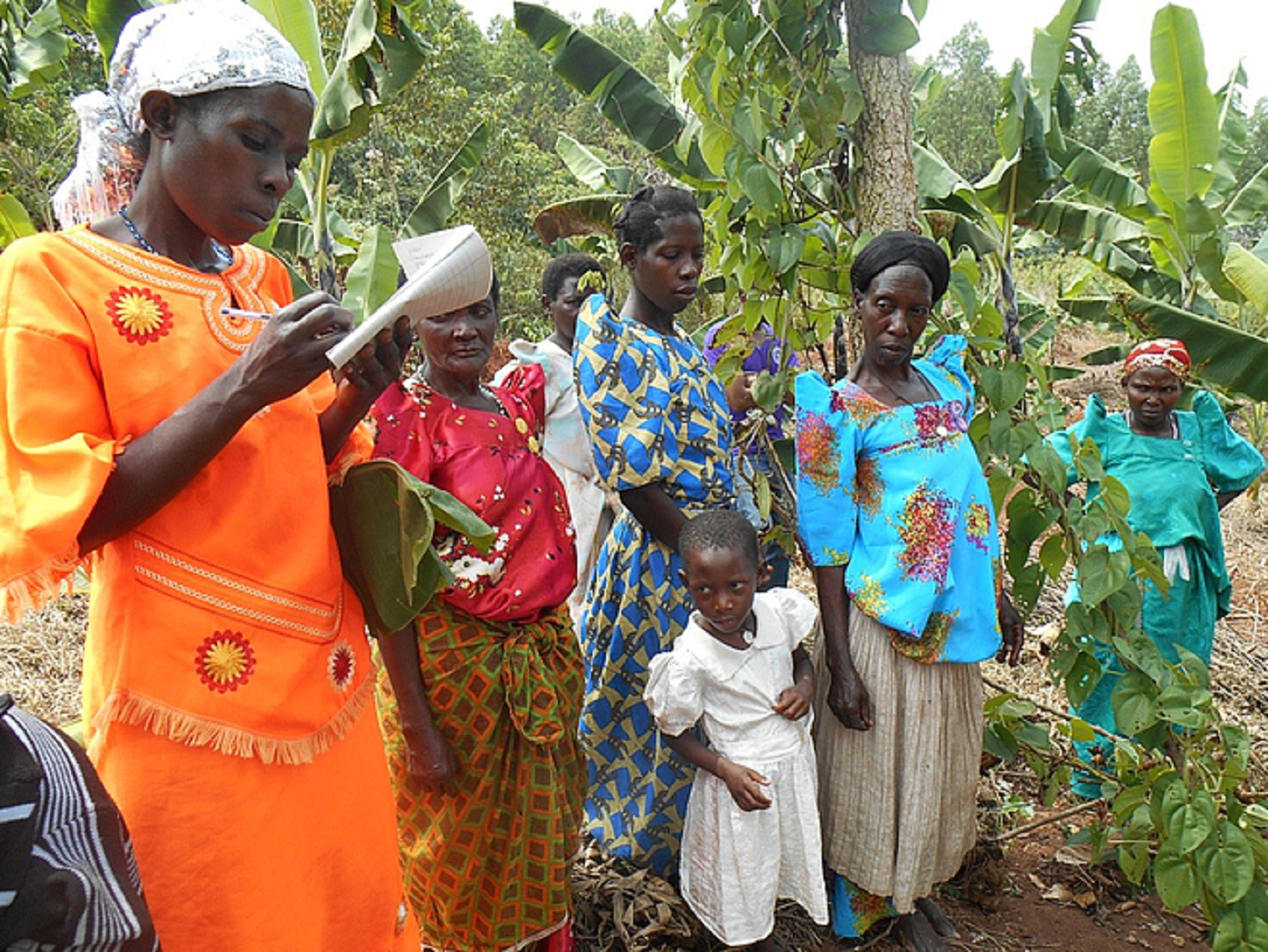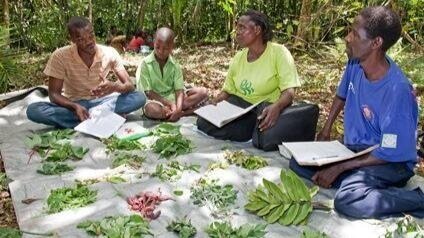Forest School Mpigi
Health care, ecological agriculture and protection of forests in Uganda
Project
PROMETRA Uganda is working with the “Buyijja Forest School” in the Ugandan District of Mpigi to improve healthcare for rural populations and protect forests. The objective is to reduce poverty and improve the living conditions of people living in the Buwama district of Uganda by strengthening traditional healthcare and expanding the use of ecological methods of cultivation. Those seeking to train as natural healers attend weekly courses on how to recognise common diseases and treat them with herbal medicines. By the end of the three-year course, they will be able to recognise hundreds of medicinal plants and be familiar with their effects and how they are processed and used. This also sensitizes them to the importance and protection of forests as they depend on their natural resources.
Objectives of current project phase
Educate and train healers in order to increase knowledge on how to use and retain native medicinal plants as well as ecological methods of farming
Improve the infrastructure needed to disseminate the information; demonstration fields, a community-run library containing the relevant information and theatrical productions with content on ecological methods of farming
Strengthen our partner PROMETRA and local community structures (medical healers and farmers) in order to promote a sustainable use of natural resources.
Relevance
Mpigi District in Uganda is an important forest and water catchment area. Communities in this area also depend on the forests as a resource. In recent years, the forests have been increasingly exploited, destroying both it and its biodiversity. In addition, medical care in rural areas of Uganda is inadequate and rural populations often live too far away from the few modern health centres or cannot afford the cost. The ratio of doctors to inhabitants is one per 20,000 (Switzerland: 1 doctor per 250 inhabitants) and so the use of unpaid traditional healers is essential for basic healthcare in rural Uganda. As respected members of the community, the healers can also act as ambassadors for the sustainable use of natural resources. This benefits both people and the forests. The best way to ensure that the threatened forests are used responsibly is to make local people aware of their value for water storage, as a climate regulator and a refuge for medicinal plants. A Forest School was, therefore established in 2012 in Mpigi in order to tackle these issues. The courses run by the Forest School to educate and train the medical healers also provide information on the principles of ecological methods of farming as traditional healers are often farmers themselves. They can then pass on this additional knowledge to patients during their work as healers as well as to others who may be interested and so become important multipliers.
Beneficiaries
A total of 100 people (60 female) are benefiting from the three-year training in traditional healing. They attend weekly courses in traditional healthcare and ecological methods of growing medicinal plants. In addition, 240 members of the Buyijja Traditional Healers Group (BUTHG) have been provided with information on the benefits of ecological farming methods and 160 of them are receiving regular training in ecological agriculture. A total of 1000 people have been treated by the healers trained by the project, bringing the total number of beneficiaries to 1,340.
Users of the community library can also benefit from information and learning material kept in the library. Some 200 students and 15 researchers also use the library. Family members of the direct participants benefit in a variety of ways from the acquired knowledge and so a total of 5,875 people are benefiting indirectly from the project activities.
Achievements
148 beneficiaries have been trained in traditional medicine and ecological agriculture. 480 people have so far been treated in the community clinic attached to the Forest School. 4 new demonstration gardens have been identified and are now operational. The “Buyijja Drama Group” has put on three productions that in total reached a combined audience of 3,700. A further 200 people have visited the library and so obtained information on ecological agriculture and traditional medicine outside the framework of the training courses.
Sustainability
In the longer term, the Forest School will seek to be financially independent and plans to generate money by selling seeds and seedlings for medicinal plants, vegetables and cereals. They are also planning the professional processing, packing and marketing of medicinal and healthcare products for which Prometra Uganda still needs additional starting capital and know-how. In addition, members of the project team have access to the food produced in the teaching and demonstration garden for ecological agriculture. This will enable them to improve their diet.




